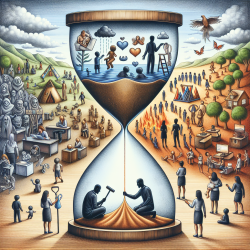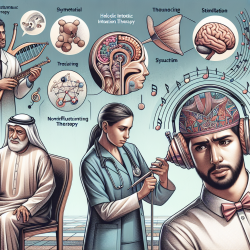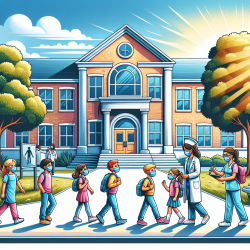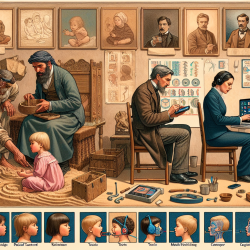Introduction
As a Special Education Director, it is crucial to stay informed about the latest research and findings that can impact the well-being and development of students. One such area of interest is the association between childhood experiences and adult antisocial behaviors. The research article titled "Associations of Harsh Physical Punishment and Child Maltreatment in Childhood With Antisocial Behaviors in Adulthood" provides valuable insights into this topic.
Key Findings from the Research
The study utilized data from the National Survey on Alcohol and Related Conditions Wave 3, which included 36,309 adult participants. The findings revealed significant associations between harsh physical punishment, child maltreatment, and adult antisocial behaviors. Here are some key points:
- Harsh physical punishment and child maltreatment were linked to increased antisocial behaviors in adulthood.
- The prevalence of harsh physical punishment was 18.1%, while child maltreatment was 46.7% among participants.
- Approximately 45.5% of antisocial behaviors among men and 47.3% among women in the U.S. could be attributed to these childhood experiences.
Implications for Practitioners
As practitioners working with children and families, understanding the impact of childhood experiences on adult behavior is essential. Here are some ways to implement the research findings into practice:
- Promote Positive Parenting: Encourage parents to adopt non-violent disciplinary methods and provide resources for positive parenting techniques.
- Early Intervention: Identify and support children at risk of experiencing harsh physical punishment or maltreatment through early intervention programs.
- Collaborate with Community Resources: Work with community organizations to provide support and resources for families in need.
- Advocate for Policy Changes: Support policies and legislation that aim to prevent child maltreatment and promote child welfare.
Encouraging Further Research
While the study provides valuable insights, there is always room for further research. Practitioners are encouraged to explore additional studies on the topic and consider conducting their own research to better understand the nuances of childhood experiences and their long-term effects.
Conclusion
The research highlights the significant impact of harsh physical punishment and child maltreatment on adult antisocial behaviors. By implementing prevention strategies and advocating for positive change, practitioners can contribute to reducing these behaviors and promoting healthier outcomes for future generations.
To read the original research paper, please follow this link: Associations of Harsh Physical Punishment and Child Maltreatment in Childhood With Antisocial Behaviors in Adulthood.










